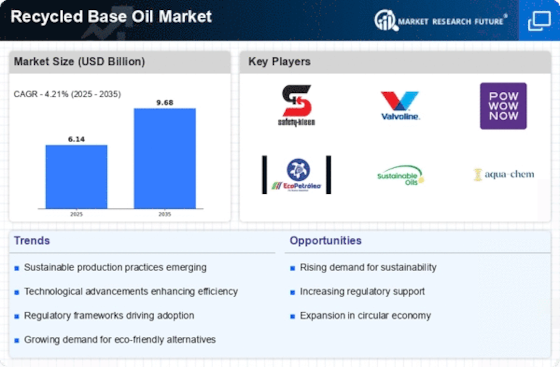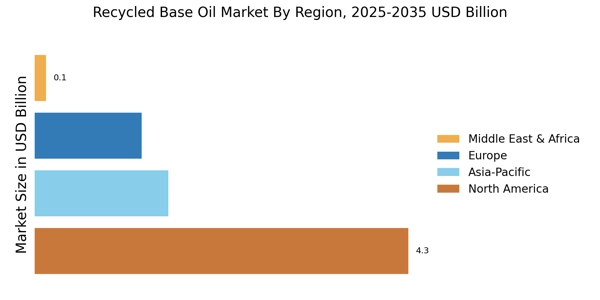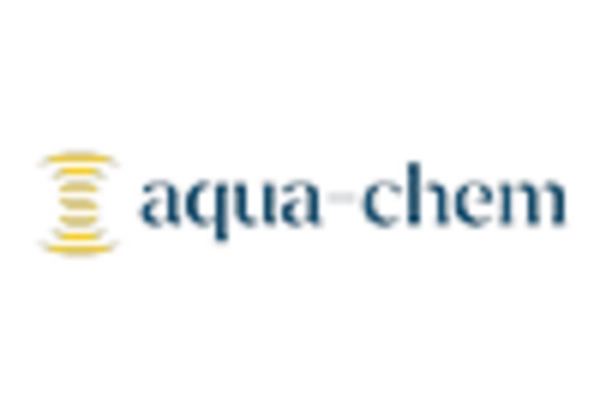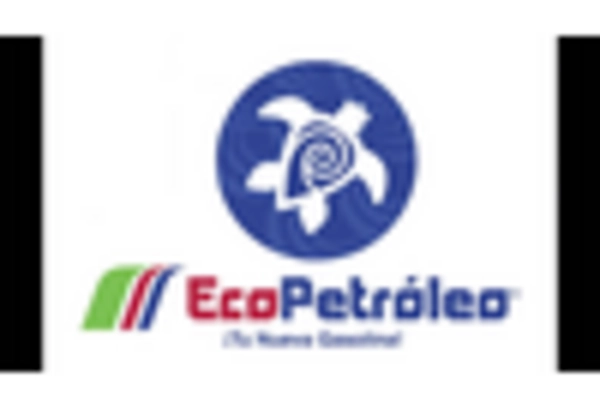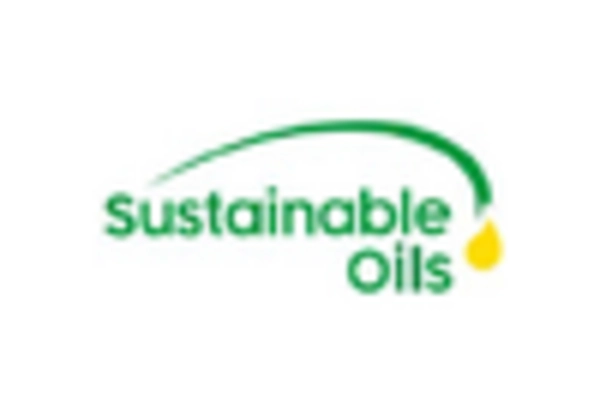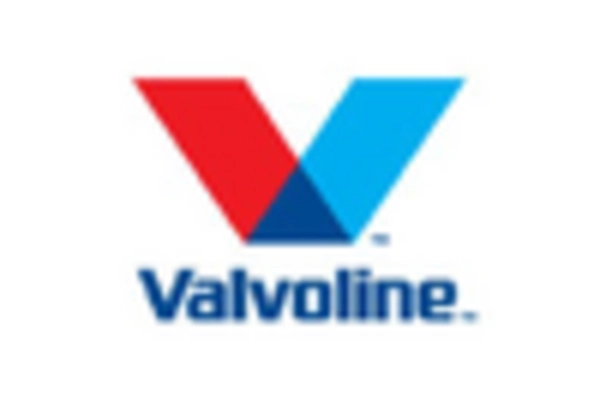Rising Consumer Awareness
Consumer awareness regarding environmental sustainability is a key driver for the Recycled Base Oil Market. As individuals and businesses become more conscious of their ecological footprint, the demand for sustainable products, including recycled base oils, is on the rise. Surveys indicate that a significant percentage of consumers prefer products that are environmentally friendly, which has led to an increase in the adoption of recycled oils in various applications, such as automotive and industrial lubricants. This shift in consumer behavior is likely to propel the market forward, as manufacturers respond to this demand by expanding their offerings of recycled base oils.
Cost-Effectiveness of Recycled Oils
The economic advantages associated with recycled base oils are contributing to the growth of the Recycled Base Oil Market. Recycled oils are often less expensive to produce than their virgin counterparts, primarily due to lower raw material costs and reduced energy consumption during production. This cost-effectiveness makes recycled base oils an attractive option for businesses looking to reduce operational expenses while maintaining product quality. As the price of crude oil remains volatile, the appeal of recycled base oils as a stable and economical alternative is likely to increase, further driving market growth.
Increasing Environmental Regulations
The Recycled Base Oil Market is significantly influenced by stringent environmental regulations aimed at reducing waste and promoting recycling. Governments worldwide are implementing policies that encourage the use of recycled materials, including base oils. For instance, regulations that mandate a certain percentage of recycled content in lubricants are becoming more common. This regulatory support not only boosts the demand for recycled base oils but also incentivizes manufacturers to invest in recycling technologies. As a result, the market is expected to expand, with an increasing number of companies entering the sector to comply with these regulations and meet consumer demand for eco-friendly products.
Technological Innovations in Recycling
Technological advancements in recycling processes are driving the Recycled Base Oil Market. Innovations such as hydrotreating and vacuum distillation enhance the quality of recycled base oils, making them comparable to virgin oils. These technologies not only improve the efficiency of oil recovery but also reduce the environmental impact associated with traditional oil extraction. As a result, the market for recycled base oils is projected to grow at a compound annual growth rate of approximately 5% over the next few years. This growth is indicative of a broader trend towards sustainable practices in the oil industry, where recycled base oils are increasingly recognized for their performance and environmental benefits.
Expansion of Automotive and Industrial Sectors
The expansion of the automotive and industrial sectors is a significant driver for the Recycled Base Oil Market. As these sectors continue to grow, the demand for lubricants, including those made from recycled base oils, is expected to rise. The automotive industry, in particular, is increasingly adopting recycled oils due to their performance characteristics and environmental benefits. Additionally, industrial applications are recognizing the advantages of using recycled base oils in machinery and equipment, leading to a broader acceptance of these products. This trend is anticipated to bolster the market, as more companies seek sustainable solutions to meet their operational needs.


